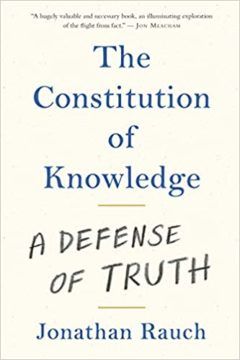Robert Tracinski in his Substack Newsletter:
 The signature of our current debate about free speech is that it is not primarily about protecting speech from the government. Rather, it is about the “culture of free speech.” It’s about intellectual openness and diversity as a cultural norm to be embraced by private individuals and private institutions.
The signature of our current debate about free speech is that it is not primarily about protecting speech from the government. Rather, it is about the “culture of free speech.” It’s about intellectual openness and diversity as a cultural norm to be embraced by private individuals and private institutions.
Symposium held a recent discussion about what this culture of free speech means, and over at Discourse, I have made my own effort to define it more exactly. But in his new book, Jonathan Rauch has taken on this issue from a far broader perspective, not merely defending the culture of free speech but defining its institutional architecture and giving it a grander and more useful name: The Constitution of Knowledge.
The fundamental arguments for freedom of speech have always been epistemological, that is, relating to the basic requirements of thinking. The freedom to doubt, question, argue, and consider alternative hypotheses is necessary to discover the truth and to debunk error. Rauch describes how this gives rise to a whole implicit system governed by an unwritten constitution.
More here.
